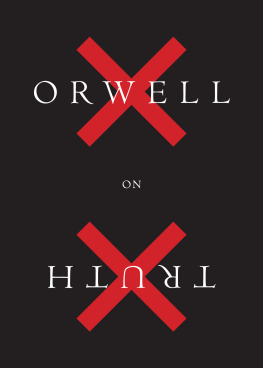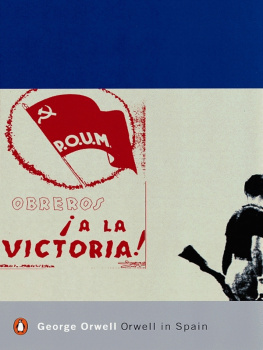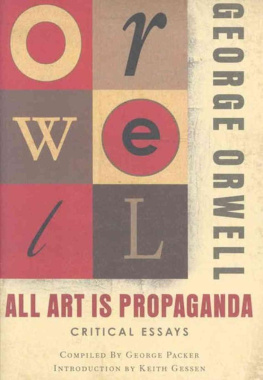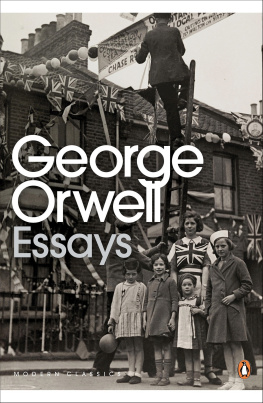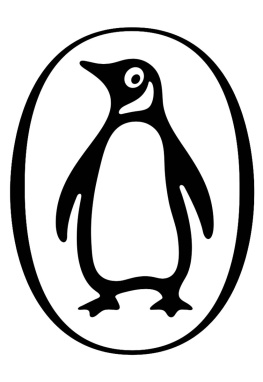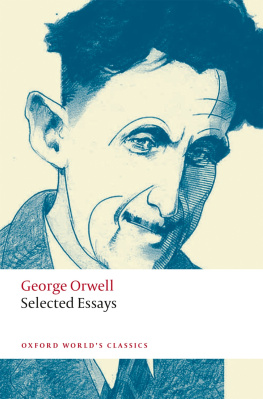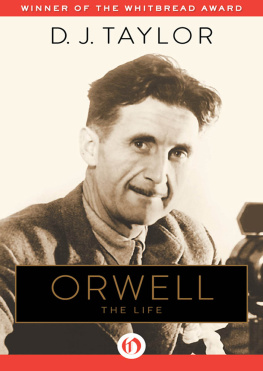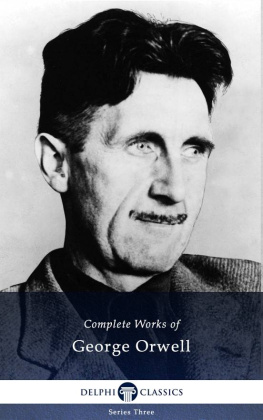Copyright 2017 by the Estate of the late Sonia Brownell Orwell
Compilation copyright 2017 by Harvill Secker
Introduction copyright 2018 by Adam Hochschild
All rights reserved
For information about permission to reproduce selections from this book, write to or to Permissions, Houghton Mifflin Harcourt Publishing Company, 3 Park Avenue, 19th Floor, New York, New York 10016.
hmhco.com
This volume, compiled by David Milner, was collected from The Complete Works of George Orwell, edited by Peter Davison, OBE, published in Great Britain in 1998 by Secker & Warburg.
Library of Congress Cataloging-in-Publication Data
Names: Orwell, George, 19031950 author. | Hochschild, Adam author of introduction.
Title: Orwell on truth / George Orwell.
Description: Boston : Houghton Mifflin Harcourt, 2018.
Identifiers: LCCN 2017057698 | ISBN 9781328507860 (hardback) | 978-1-328-50871-3 (ebook)
Subjects: LCSH: Orwell, George, 19031950Political and social views. | Truthfulness and falsehoodPolitical aspects. | BISAC: LITERARY COLLECTIONS / Essays. | POLITICAL SCIENCE / Public Policy / Social Policy. | POLITICAL SCIENCE / Political Freedom & Security / General.
Classification: LCC PR6029.R8 A6 2018 | DDC 828/.91209dc23
LC record available at https://lccn.loc.gov/2017057698
Jacket design by Mark R. Robinson
v1.0318
Introduction
In thinking about a long-dead writer, we sometimes wonder: what would he or she make of the world today? Even though he died nearly 70 years ago, George Orwell often seems as if he were writing about the world today.
Could we have a better guide to Donald Trumps America? When a senior aide to President Trump talked about alternative facts at a time when the real ones (a low turnout for his inauguration, starkly visible in photographs) were embarrassing, what is that but the twisting of truth into propaganda that Orwell described so chillingly in Nineteen Eighty-Four and elsewhere? In a 1943 essay excerpted in this book he wrote, Nazi theory... specifically denies that such a thing as the truth exists... If the Leader says of such and such an event, It never happenedwell, it never happened. If he says that two and two are fivewell, two and two are five. This prospect frightens me much more than bombs. Is this not the universe that President Trump, surrounded by embarrassing facts on all sides, would like to live in?
Similarly, when Trump speaks of Mexican immigrants, saying, Theyre bringing drugs. Theyre bringing crime. Theyre rapists, this is a mindset Orwell knew well, for he writes in another piece in these pages of the habit of assuming that human beings can be classified like insects and that whole blocks of millions or tens of millions of people can be confidently labelled good or bad.
Or, take a further Orwell insight that seems based on todays headlines: All nationalists have the power of not seeing resemblances between similar sets of facts. A British Tory will defend self-determination in Europe and oppose it in India with no feeling of inconsistency. Actions are held to be good or bad, not on their own merits but according to who does them. As I write this, Trump has just addressed the United Nations General Assembly, praising the principle of sovereignty and condemning nations like North Korea and Iran that he accuses of threatening the sovereignty of other countries, but not mentioning the outright seizure of Crimea from sovereign Ukraine by the autocrat he so much admires, Vladimir Putin of Russia.
Lest we forget, open contempt for facts is not new. It was an unnamed member of President George W. Bushs staff in 2004 who, interviewed by the New York Times Magazine, sneeringly referred to the reality-based community. He added, Thats not the way the world really works anymore. Were an empire now, and when we act, we create our own reality. Consider just one topic: climate change. For decades, after an immense propaganda effort financed by oil companies, an appalling number of Americans have vociferously denied that human beings have anything to do with climate change. As a succession of unusually severe hurricanes lash our land and rising ocean waters flood our shores, could even Orwell have imagined such a defiant assertion that two and two equal five? All of us in the reality-based community need him more than ever.
As this collection makes clear, Orwell valued truth above all else. And he detested political lies, sometimes even more than violence. What gave Orwell his uncanny truth-seeking radar? I believe it can be traced to several key experiences. Literate and well read though he was, his was a life lived in the real world, bringing him face-to-face with ruthless forces that on one occasion almost killed him. As the critic Christopher Hitchens once said, Orwell personally encountered the three great malevolent movements of the twentieth centuryEuropean imperialism, fascism, and communismand took the right stand on all three.
Imperialism was the first. He had been born in India, where his father was a colonial civil servant. Although Orwell was taken back to England as a small child, he had long dreamed of returning to the East. After finishing his schooling, he set off in 1922, at the age of nineteen, to join the Indian Imperial Police in Burma, which was then governed as part of British India. Learning to speak the local language, he found the British Empire to be a far more brutal and less glorious enterprise than what he had imagined. After five yearsI had already made up my mind that imperialism was an evil thing and the sooner I chucked up my job and got out of it the betterhe returned to England, determined to become a writer.
Many intellectuals of the day criticized imperialism from the safety of their desks, but it was rare indeed for such an opponent to emerge from the colonial bureaucracy itself, especially from the police. Surely Orwells feelings were heightened by the conflict between his beliefs and the role that he had found himself in. He explored those emotions in his novel Burmese Days, excerpted here, and in two essays, A Hanging and Shooting an Elephant.
The latter is a particularly brilliant piece of writing, in which Orwell describes how, as a police officer, he was confronted with an elephant that had broken free of its chain and killed someone. Once he saw the situation, he realized that elephant didnt have to be killed in return, only guarded carefully until its mahout, whom it would obey, arrived on the scene. But a crowd of angry Burmese was demanding that he shoot the elephant, and he knew he would lose face if he did not. A sahib has got to act like a sahib; he has got to appear resolute. For every such official it is the condition of his rule that he shall spend his life in trying to impress the natives and so in every crisis he has got to do what the natives expect of him... My whole life, every white mans life in the East, was one long struggle not to be laughed at. He shot the elephant. I once assigned this essay in a narrative writing workshop I was teaching in India, not at all sure of how Indian students would react to a former colonial officer baring the conflict in his soul. But they were deeply impressed. One, speaking of Orwells painstaking honesty about his own conflicted feelings, said, I didnt know it was possible to write like that.
Soon after a disillusioned Orwell returned to Europe from seeing imperialism firsthand in Burma, like millions of others he became deeply alarmed by the rise of another powerful system: fascism. Benito Mussolini had been in office in Italy since the early 1920s, and then Adolf Hitler took power in Germany in 1933. Suddenly Western Europes largest and most powerful country was under a dictators rule. That dictator was issuing laws restricting Jews, sending soldiers goose-stepping through the streets, and ordering his partys thugs to beat and murder his political enemies. Ominously, half a dozen other European countries, from Portugal to Lithuania, Hungary to Greece, were also under regimes of the far right. In England itself, the British Union of Fascists boasted 50,000 members; wearing black tunics, black trousers, and wide black leather belts, they paraded through Jewish neighborhoods of London under a flag with a lightning bolt, shouting insults, giving the straight-arm salute, and beating up anyone in their way. As the French writer Andr Malraux put it, Fascism has spread its great black wings over Europe.
Next page
